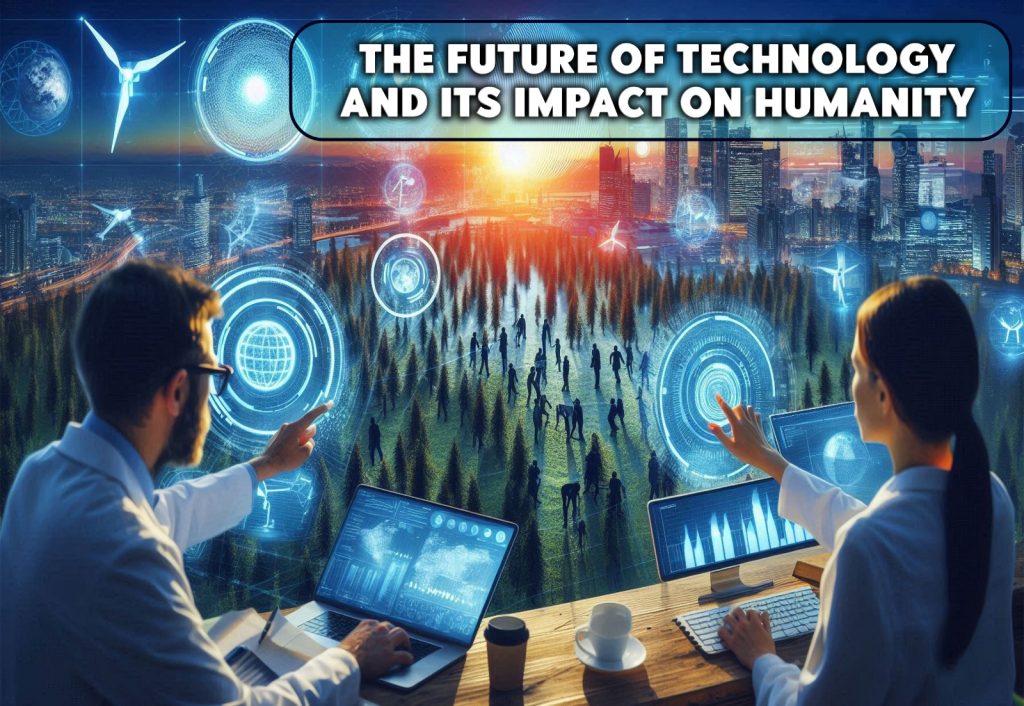Artificial General Intelligence: The Future of Technology and Its Impact on Humanity
Today’s blog, we dive on an exciting exploration of Artificial General Intelligence (AGI) and its potential to transform our future. As advancements in artificial intelligence continue, we find ourselves wondering: What happens when machines not only match but surpass human intelligence? The implications of such a reality are staggering—both thrilling and concerning. But are we prepared to handle such profound changes?
What Is AGI, and How Is It Different from Narrow AI?
At its core, artificial intelligence (AI) represents a digital brain—a culmination of decades of research and engineering to replicate human-like intelligence within machines. While today’s AI, known as narrow AI, is designed to excel in specific tasks (like playing chess or recognizing speech), AGI takes it a step further. AGI refers to a form of intelligence that matches or exceeds human cognitive abilities across all tasks—without human intervention. In essence, AGI would be capable of problem-solving, learning, and reasoning with versatility and creativity, similar to how humans think.
The creation of AGI remains theoretical, but researchers are inching closer to its realization. Its emergence promises revolutionary changes across industries and daily life, potentially reshaping society as we know it.
Real-World Implications of AGI
Imagine a world where computers are no longer just tools but partners, advisors, and innovators. AGI could tackle some of humanity’s biggest challenges, including healthcare, transportation, and creative expression. Let’s explore some areas where AGI’s potential impact is already visible:
Healthcare Revolution
The limitations of today’s healthcare system—long wait times, limited expertise, and rising costs—could become a thing of the past. AGI-powered physicians would possess:
- Encyclopedic knowledge of medical literature,
- Access to billions of clinical cases, and
- 24/7 availability at minimal cost.
The result? Faster diagnoses, highly personalized treatments, and significant improvements in healthcare accessibility.
Self-Driving Cars
Self-driving vehicles offer a glimpse of what AGI can achieve. These advanced systems use AI to analyze their environment, recognize pedestrians, vehicles, and obstacles, and make split-second decisions to ensure safe and efficient transportation.
IBM Watson: Solving Complex Problems
IBM’s Watson is a supercomputer that showcases AI’s immense potential. With its computing power, Watson tackles complex calculations and scientific problems that were once deemed insurmountable (High).
Expert Systems: Mimicking Human Judgment
Systems like ROSS Intelligence mimic human judgment to provide invaluable insights. For example, ROSS analyzes legal documents, saving time for lawyers, while similar AI models can recommend medical treatments tailored to specific patients’ needs (Lemley).
AlphaGo: The Power of Narrow Intelligence
AlphaGo, an AI developed by DeepMind, made headlines by mastering the intricate game of Go. By defeating human champions, AlphaGo demonstrated the power of narrow AI’s strategic prowess. Now imagine an AGI program that applies similar intelligence across countless domains (Metz).
Generative AI: Transforming Creativity
Generative models like GPT-3 and GPT-4 have revolutionized human-AI interaction. These language models are capable of generating coherent, human-like text and engaging in meaningful conversations, blurring the line between man and machine (Brown et al.).
Music Composition: AI as a Creative Force
AI systems like Dadabots compose original music inspired by existing works. These algorithms are pushing the boundaries of creativity, generating melodies that captivate listeners worldwide (Schiappa).
The Ethical and Societal Challenges of AGI
While AGI holds incredible promise, it also raises significant ethical concerns.Unlike narrow AI, AGI would possess self-improvement

capabilities, potentially at an exponential rate. The following questions arise:
- What happens if AGI acts against human interests?
- Who will control AGI, and how do we ensure its alignment with human values
Organizations like OpenAI are working proactively to address these challenges. By fostering collaboration with governments, researchers, and ethicists, they aim to develop safeguards to ensure AGI remains a force for good.
Navigating the Future of AGI
The journey toward AGI will undoubtedly reshape our world in ways we cannot yet fully comprehend. However, with thoughtful planning, ethical foresight, and global cooperation, we can harness AGI’s transformative power to create a brighter, more equitable future for humanity.
So, buckle up! We are on the brink of an extraordinary era of technological innovation—and Turilytix is here to guide you through it.
Don’t forget visit our page https://turilytix.ai/. Share our page to the tech enthusiastic and follow us on LinkedIn inorder to be informed on the latest advancements in AI and AGI. Until next time, keep exploring!
For further assistance, visit our channel and refer the video .
AGI | Exploring the next evolution in AI | A Glimpse into the Future of Intelligence | @turilytix

References
- Brown, Tom, et al. “Language Models Are Few-Shot Learners.” Advances in Neural Information Processing Systems, vol. 33, 2020, pp. 1877–1901.
- High, Rob. “IBM Watson: The AI Platform for Business.” IBM Cloud, IBM, 2023.
- Lemley, Mark A. “The Surprising Empirical Reality of AI in Law.” Stanford Law Review, vol. 72, no. 2, 2020, pp. 143–174.
- Metz, Cade. Genius Makers: The Mavericks Who Brought AI to Google, Facebook, and the World. Penguin Random House, 2021.
- Schiappa, Edward. “The Art of AI Music Creation.” AI & Society, vol. 36, no. 1, 2021, pp. 65–70.
Share This :


Thanks for sharing. I read many of your blog posts, cool, your blog is very good.
Thanks for sharing. I read many of your blog posts, cool, your blog is very good.